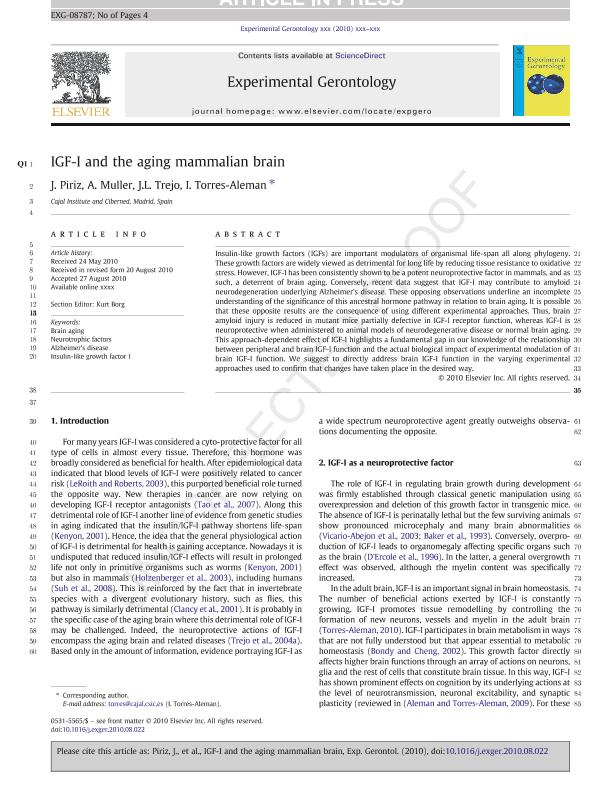Artículo
IGF-I and the aging mammalian brain
Fecha de publicación:
09/2010
Editorial:
Elsevier Inc
Revista:
Experimental Gerontology
ISSN:
0531-5565
Idioma:
Inglés
Tipo de recurso:
Artículo publicado
Clasificación temática:
Resumen
Insulin-like growth factors (IGFs) are important modulators of organismal life-span all along phylogeny. These growth factors are widely viewed as detrimental for long life by reducing tissue resistance to oxidative stress. However, IGF-I has been consistently shown to be a potent neuroprotective factor in mammals, and as such, a deterrent of brain aging. Conversely, recent data suggest that IGF-I may contribute to amyloid neurodegeneration underlying Alzheimer's disease. These opposing observations underline an incomplete understanding of the significance of this ancestral hormone pathway in relation to brain aging. It is possible that these opposite results are the consequence of using different experimental approaches. Thus, brain amyloid injury is reduced in mutant mice partially defective in IGF-I receptor function, whereas IGF-I is neuroprotective when administered to animal models of neurodegenerative disease or normal brain aging. This approach-dependent effect of IGF-I highlights a fundamental gap in our knowledge of the relationship between peripheral and brain IGF-I function and the actual biological impact of experimental modulation of brain IGF-I function. We suggest to directly address brain IGF-I function in the varying experimental approaches used to confirm that changes have taken place in the desired way.
Archivos asociados
Licencia
Identificadores
Colecciones
Articulos(IFIBYNE)
Articulos de INST.DE FISIOL., BIOL.MOLECULAR Y NEUROCIENCIAS
Articulos de INST.DE FISIOL., BIOL.MOLECULAR Y NEUROCIENCIAS
Citación
Piriz, Joaquin; Muller, A.; Trejo, J. L.; Torres Aleman, I.; IGF-I and the aging mammalian brain
; Elsevier Inc; Experimental Gerontology; 46; 2-3; 9-2010; 96-99
Compartir
Altmétricas




